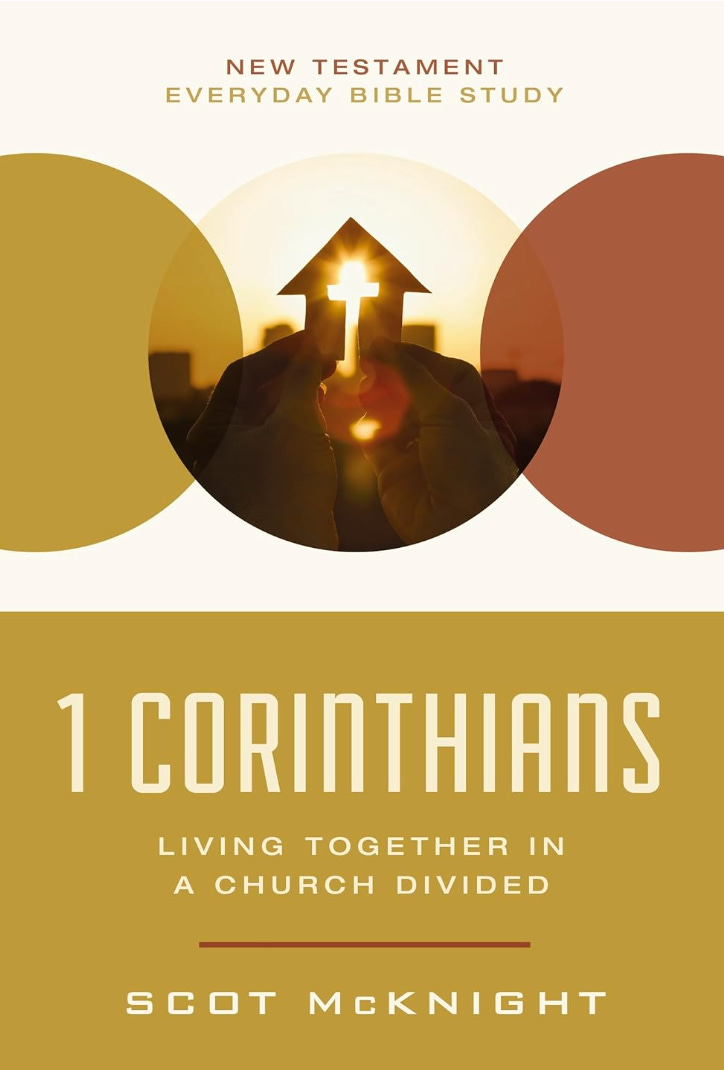You Are Not Alone
Have you recently been criticized? Unfairly. You are not alone. Here is an excerpt from my future Everyday Bible Study on 1 Corinthians. Some, if not more (!), don’t like Paul today. I wonder if some might like him more if they learn to think about through the grid of a traumatized leader. Yes, of course, some of his words have traumatized. But, Yes too, that many of the Corinthians (and elsewhere) retaliated against Paul in ways that traumatized him.
The context for Paul’s letters to the Corinthians
The relationship between the founding pastor, Paul, and the believers in Corinth shifted from their barely tolerating Paul to their virulent criticism of him. What Paul wrote, with a pen burning letters onto papyri in our second letter to the Corinthians, gives us more than a glimpse of what the Corinthians, or at least some vocal critics, thought of Paul. In 2 Corinthians 10-13 Paul provides X/Twitter-like (very critical) clips of their criticisms of him. To read one’s criticisms of someone else’s criticisms of them is not always the easiest way to figure out the criticisms!
Take 2 Corinthians 10:1 as an example. Here Paul writes, “I, Paul, who am ‘timid’ when face to face with you, but ‘bold’ toward you when away!” The NIV puts timid and bold in quotations because the translators think Paul is quoting the words of the Corinthians. I agree. These words reveal that they accused Paul of being a milquetoast lightweight people-pleaser when present in Corinth in their house churches but once he got back to Ephesus, he turned up the harsh tones of his opinions. A second example sounds like the Corinthians thought Paul’s physical appearance did not stand up to their idea of a man with such rhetorical and social power: “You are judging by appearances” (10:7). Another indicates they thought he was unpolished and untrained as a public speaker: “his speaking amounts to nothing” (10:10; see 11:5). People-pleasing, unmanly, weak preacher. Not exactly the words you want to read in your Inbox when you wake up.
One of the more interesting criticisms concerned Paul’s lack of boasting. This one indicates Paul lacked the kind of public bravado and self-confidence they expected of a traveling speaker. “We are not going too far in our boasting… neither do we go beyond our limits by boasting of work done by others” (10:13-14). After all, it was Paul’s gentile mission that snared the believers in Corinth, but Paul seems not to be taking a proper responsibility for his accomplishments. They nail him for it. The flipside of Paul not taking sufficient credit for the wider sweep of his mission was that he was just too humble about it all: “Was it a sin for me to lower myself in order to elevate you by preaching the gospel free of charge?” (11:7). The people-pleasing weak preacher lacked social confidence.
That raises the accusation they had with Paul about funding. He evidently did not take funds from them but “robbed,” so they say, other churches when he ministered in Corinth (11:8). His principle was not to take funds when planting a church and refusing funds until the church was more self-supporting, and they thought this was a slam on their status. The Corinthians thought they were special, even high-status, a church full of “Well Knowns” and “Who’s Whos.” Paul was not impressed. His choice not to take their money degraded their status in their minds. They went full-on manipulative on this one with a You-don’t-love-us: “Because I do not love you?” (11:11). They also compared him to those Paul labels as “super-apostles,” and he came up short (12:11). This one stung, so Paul pulled out his stinger and said, obliquely but the point is obvious, “persevered in demonstrating among you the marks of a true apostle, including signs, wonders and miracles” (12:12). So, Corinthians, you think I’m inferior to these megastars, how about considering the miracles done among you. That’s oblique. What he means is that I did among you. Bonk! They even accused him of being a “crafty fellow” or “tricky” (12:16). It is not impossible they thought he did those miracles just mentioned by the powers of sorcerers! Ah, this sounds like accusing Jesus of exorcisms by the power of Satan (Matthew 12:24).
So, the criticisms leveled against him by his own church “parishioners” included:
1. He had a weak, timid personality.
2. He was completely different, that is, he had a strong personality, when away.
3. He didn’t have the right look.
4. His speaking, preaching skills were lacking.
5. He lacked self-confidence and had many self-hesitations.
6. He degraded their status by not receiving their donations.
7. He didn’t love them.
8. He loved other churches more.
9. He wasn’t on par with the more prominent Christian leaders.
10. He was tricky and slippery.
Plus, 1 Corinthians contains more of the same (e.g., 4:1-5; 9:1-23). Paul, as pastor and as apostle and as mentor, was anything but warmly received, respected, honored, and praised. He was talked about. He was gossiped about. They degraded him. Divisions are so common in churches. Pastors either put up with a lot or they move on, or in some cases they have good, nice people who mostly leave them alone.




I think if you read Paul casually with all the cultural baggage it’s really easy to be offended by him - I was in high school/college when I started reading the Bible seriously. But the longer I’ve read him and thought about him, the more impressed I am with him, and the more I think we’ve really gotten him wrong in understanding his words. I had never thought about him as a traumatized leader, but I think that makes a lot of sense.
Excellent, relevant insight and oh so very encouraging!! So blessed with my current pastor Steve Ruetschle who is was weathered similar storms in our church but keeps his eyes on Jesus and is an amazing teacher and faithful man like Paul.